Changing Work, Changing Workers - Preview
Companies rethink the need to even have offices, or how to redesign places of work. The traditional work shift - 9-5, 5 days a week – is losing relevance. Many companies are adopting the remote work models, spawned by the pandemic, as their new normal. Does the nation need new policies of Guaranteed Basic Income, (UBI) or a drastic rethinking of the social safety nets?
Extras + Features
-

Changing Work, Changing Workers - Preview
30s
Companies rethink the need to even have offices, or how to redesign places of work. The traditional work shift - 9-5, 5 days a week – is losing relevance. Many companies are adopting the remote work models, spawned by the pandemic, as their new normal. Does the nation need new policies of Guaranteed Basic Income, (UBI) or a drastic rethinking of the social safety nets?
-

Futureproof - Preview
31s
Frontline and service workers have borne the health consequences of the pandemic, increasing racial and economic disparities. Certain robotic and AI applications are accelerating as the value of human workers is further questioned. Determining the likely areas of job growth and training needs is difficult. Post-secondary education has become more virtual and its costs, more controversial.
-

The Gig Economy
3m 2s
Today more than 55 million Americans work in the gig economy, which operates through digital platforms like Uber, Lyft and Task Rabbit. Fueled by technological advancements, the gig economy allows workers like Chloe Grishaw to set her own schedule, and know what she’s agreeing to, without any long-term obligations. The freedom and flexibility, however, comes with financial insecurity.
-

The New Industrial Revolution - Preview
29s
In addition to illuminating the ongoing drivers for disruptions to the world of work – AI, robotics, platform technology, globalization, labor practices -- the pandemic has been a driver of change. Unemployment flipped from lowest in 50 years to highest in a century.
-
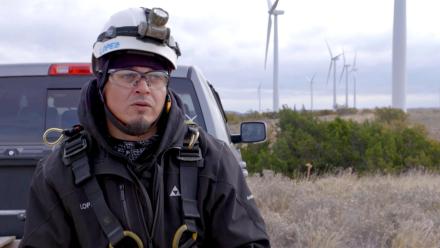
A Job With a Future
2m 29s
Juan Lopez moved from the military to the oil and gas industry before becoming a wind turbine technician. His path, though not an easy one, is an example of an exciting way to navigate successfully across industries. As this clip shows, working with wind turbines, can be dangerous, but it’s an industry with a future, and Juan knows, if he can keep from getting hurt, he should always have a job.
-

Will AI Dismantle The Modelling industry?
2m 44s
Alexsandrah Gondora is a human model, but she’s also Shudu, the first world-wide digital model. Camerson-James Wilson works with real models, but recreates the photos he takes in 3D to create digital models, models who don’t get tired, or sick, and can be in many places at one time. But will modelling as an industry be completely replaced by Artificial Intelligence and technology at large?
-
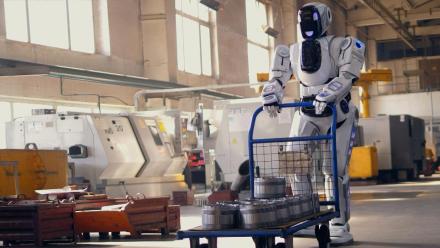
Future of Work Preview
1m 43s
Since early 2020, the world has been rocked by triple crises: the global pandemic, the ensuing economic disruptions, and the acknowledgement of long-existing racial inequities. With U.S. unemployment sky-high, a majority of Americans are concerned about the future. The usual ladders to security - education, hard work, life-long employment - appear to have broken down.
-
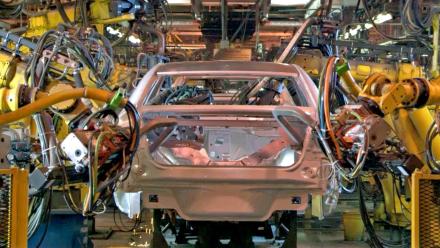
Can We Futureproof Our Work?
2m 53s
A.I. Technologist and Entrepreneur, Kai-Fu Lee believes routine jobs will be displaced faster than new jobs will be created in the next 10-15 years. Though we’ll see a net loss of jobs, there will be many jobs invented and created. But how do workers future-proof themselves for jobs that don’t yet exist? What skills will be needed, and is college really worth it?
-
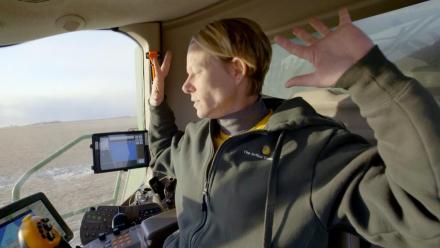
Farming and the Technological Revolution
2m 45s
Technology has completely changed the way that farmers do things today, from the seeds that they plant to the way they drive their equipment. Sarah Lovas’s family has been farming in North Dakota for four generations. Today a farm labor shortage has forced farmers like Sarah to embrace the latest technologies, and agriculture is being digitized.
-
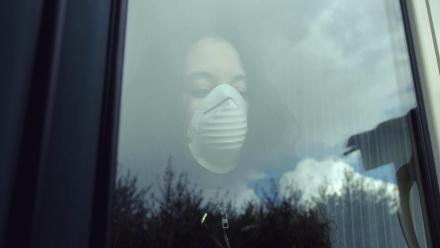
American ‘Workism’ and the COVID Pandemic
2m 20s
Each year Americans work longer and take fewer vacation days than others in the developed world. American ‘Workism’, logging long hours with little time off, might inspire people to make amazing things, but at what cost? While the COVID pandemic appears to have accelerated this work drive, and many are working more hours, women have been leaving the labor force in disproportionate numbers.
-

Apprenticing: Working Towards the Salary You Want
4m 1s
Tiffany Spraggins decided to go back to college after working jobs with no opportunity for growth. Knowing she wanted to make a livable wage, she started by looking at jobs that paid the salary she wanted. At college, she learned about an apprenticeship program to become a software functions tester, and she’s now on a path to being a full professional in a white-collar job.
-

Autonomous Robots
2m 40s
Robots are already replacing human jobs. Advocates say they are the jobs people don’t want, but nonetheless, they are paying jobs, and the advent of human-like robots is getting closer as technology advances. AI systems have the capacity to replace humans on a scale never seen before. Should we embrace the future of robots, because it will create jobs that are more meaningful?
Schedule
PBS PASSPORT
Stream tens of thousands of hours of your PBS and local favorites with WETA+ and PBS Passport whenever and wherever you want. Catch up on a single episode or binge-watch full seasons before they air on TV.
Similar Shows

The Wild Ponies of Chincoteague
Culture

Relative Race
Culture

A Brief History of the Future
Culture


Unguarded
Culture

Chasing Voices
Culture


Voices Over the Water
Culture

Getting Dot Older
Culture
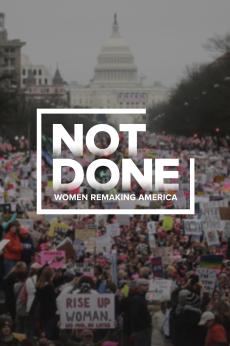
Not Done: Women Remaking America
Culture